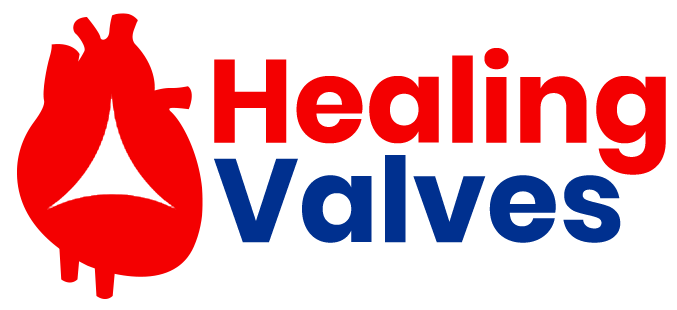
The valves in your heart are four tiny gatekeepers that regulate blood flow throughout your heart each time when it beats.
These valves have flaps that open and close each time a beat is made.
The Pulmonary and Tricuspid valves permit deoxygenated blood (blood with no oxygen) to flow back to the heart to be sent to the lungs.
The Aortic and Mitral valves let oxygen-rich blood flowing from the lung to flow to the heart, which then pumps through the body.

What exactly is valve problem ?
Heart valve problems result when your valves aren’t closing or opening correctly, usually because of two causes.
Regurgitation: occurs when valves don’t close sufficiently and blood leaks back into the heart chambers instead of moving forward.
Stenosis: Stenosis of the valves of your body is a problem where the leaflets of your valve may stiffen or fuse together, making it difficult to allow blood flow.
The Mitral and Aortic valves are two valves that are most commonly affected by stenosis or regurgitation.

Causes
There are numerous causes of Heart Valve disease. Some are caused by other ailments, while others are caused by genetic causes.
They are the most frequent causes of heart valve diseases:
- Ageing: As we get older, calcium gets deposited on the valves. The valves become stiff and hard which is often referred to as stenosis.
- Congenital or birth defects Some people have valves of smaller or have a different shape. For instance, you could have two leaflets, instead of three (bicuspid aortic valve)
- Infection: there’s a variety of kinds of infections that can cause your valves to become damaged. These include rheumatic heart illness and endocarditis.
- Heart Failure: When your heart size increases, the valve could also be affected.
- Heart attack: If you experience a heart attack you could end up damaging the valves in your heart due to decrease support.


Signs and Symptoms
- There are a variety of indications and signs of Heart Valve Diseases.
- Feeling tired, weak and exhausted
- Coughing
- Rapid weight gain
- Breathlessness
- Angina (chest pain)
- Swollen ankles
- Dizziness
- Fainting

Risk Factors
The risk factors that can cause Heart Valve Diseases are similar as the causes that cause Heart Valve Disease:
- Age: As you get older, the valves inside your heart get thicker and stiffer. This can result in your heart valves being damaged.
- Infections that affect the Heart such as rheumatic disease Infective endocarditis, rheumatic fever as well in infections resulting due to intravenous drug usage.
- Heart valves that are congenital: If you are born with a valve with two leaflets rather than three, you’re more likely developing a valve problem in the near future.
- Risk factors for coronary artery disease if you are also a victim of the risk factors for coronary artery disease, you’re also at a higher risk of developing heart valve problems. The risk factors are overweight or obese and diabetic, as well as high blood pressure and cholesterol levels familial history of heart diseases and an active lifestyle.

The valves in your heart are four tiny gatekeepers that regulate blood flow throughout your heart each time when it beats.
These valves have flaps that open and close each time a beat is made.
The Pulmonary and Tricuspid valves permit deoxygenated blood (blood with no oxygen) to flow back to the heart to be sent to the lungs.
The Aortic and Mitral valves let oxygen-rich blood flowing from the lung to flow to the heart, which then pumps through the body.

Our spectrum of treatment includes
- TAVI/ TAVR
- Valve replacement surgery
- Mitra clips
- Tricuspid valve implantation
- Tricvalve implantation
With the current advance in valve replacement therapy, it is our goal to provide the latest technology to the patients and give them the joy with ease of treatment.
